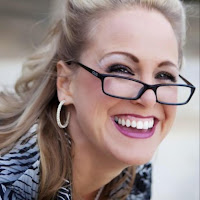Remember the food pyramid? Did you know that it can help a person not only have a healthy body but also a healthy blog? Suitably tweaked, of course.
I'll let Ariel Hyatt tell you about it.
It happens to me all of the time when I teach artists social media.The face goes blank, the frustration begins to settle in and then the artist says it:
“I just don’t have anything interesting to say.”
REALLY?
I’m shocked by this every time. You are an artist; you do things we mere mortals are totally enamored by: you PLAY MUSIC, you write songs, you perform them in public!
So PHLEEASE, do not tell me you have nothing interesting to say. I ain’t buying it.
All you are missing is a System for Social Media Success.
Luckily, unlike sheer god-given musical talent, social media is a learnable skill.
As I was teaching my system to a client in my kitchen a few weeks ago over coffee and bagels and it HIT me… and so I created:
THE MUSICIAN’S SOCIAL MEDIA FOOD PYRAMID!
Remember that chart they brought out when we were in 2nd grade to show us how to eat well-rounded meals? I have re-tooled it for you so you can now participate on Social Media healthily! And you won’t even have to think about it – just follow along…
You wouldn’t eat only bagels all of the time. They are a treat once in awhile, but they are not healthy to eat every day – and a diet of only bagels would be boring!
Most artists are only serving their audiences bagels all of the time. Plain bagels. Over an over again.
Uninteresting.
We want a burger, or a giant green healthy salad, we want some candy, give us protein!
But you keep serving bagels, bagels, bagels!
These are five things that when used in concert with one another can help you ratchet up your social media effectively and manage it easily.
To read the rest of Ariel Hyatt's awesome post, click here:
The Musician's Social Media Food Pyramid
For those of you who don't feel like clicking, here's the gist:
1. Network
It isn't all about blogging, it's about making a personal connection.
Frequency: 3 or 4 out of 10 posts.
- Facebook: Leave a comment (or comments!) and become involved.
- Twitter: Chat up your network! Send messages to people & use their twitternames.
- Blogs: Read other blogs and LEAVE COMMENTS!
- YouTube: Find videos you like, subscribe to the channel and make your own video comments.
2. Promote others
Treat others as you would like them to treat you.
Frequency: 3 out of every 10 posts
- Share profiles, photos and links to interesting articles on your Facebook page and your blog.
- Tweet others as you would have them tweet you (sorry, couldn't resist!) Participate in #FF (Follow Friday) and retweet others tweets. Review books or albums and talk about what effect they've had on you and your work.
3. Curate Content
Frequency: 2 or 3 out of every 10 posts
- RSS feeds: This is my favorite! Every day I prowl through my RSS feeds using
Google Reader and select the articles I think are the most interesting and share them.
- Food: You don't have to blog about the same thing all the time. Share recipes or talk about your favorite restaurants. Are you a secret addict of any food reality shows? (me -->
Diners, Drive-ins and Dives)
- Media: write a review, whether of a book, a movie or some music.
- Talk about something your audience is interested in. Parenting, sports, technology (the iPad!)
4. Pictures!
Take photos and share them.
Frequency: 2 out of every 10 posts
- Twitter: Use
twitpic and
yfrog.
- YouTube: Dive in! Instead of posting video replies (see above) post your own video. If you're shy, you can post videos others have made.
- Blog: It makes your blog more visually interesting if you add a photo or two and the best photo is one taken by you that has some personal connection to you. It doesn't have to be OF you -- although it can. People are naturally curious about others. What does the view out your window look like? What does your writing desk look like? Your readers want to know!
5. Promote yourself!
Frequency: 1 out of every 10 posts
Do you have a book coming out? A short story? An album? Tell people about it!
That's it! Oh, but before I end this post, two very important things.
1. Most important blogging tip ever: Whenever you post on your blog or on Facebook,
tweet a link to your post!
2. My thanks to the marvelously talented Deborah (
www.thelandofdeborah.com) who sent me the link to Ariel's article. Her voice is completely amazing, check out her
YouTube channel and her
Facebook page. You can also find her on
iTunes.
I hope you found something that will help inspire your blog posts. Cheers!










